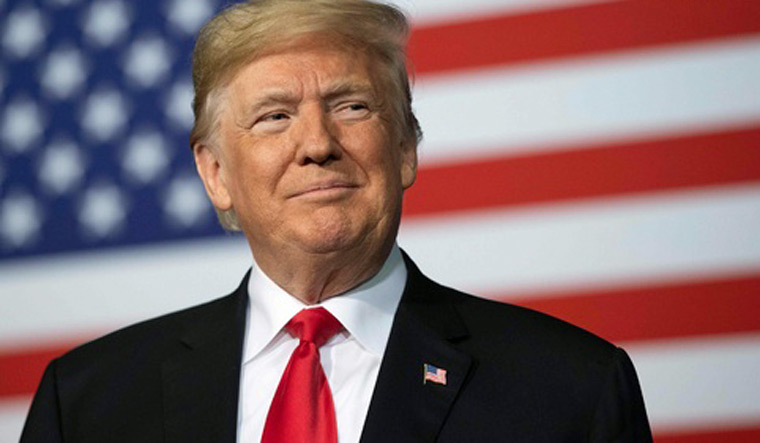A White House official said that President Trump is willing to accept less money for the US-Mexico border wall. But, according to acting chief of White House staff , Mick Mulvaney, the shut down could last till January. "It's very possible that this shutdown will go beyond the 28th and into the new Congress," Mulvaney said. Mulvaney, who is also the budget director, said he was waiting to hear from Senate Democratic leader Chuck Schumer of New York about a counteroffer the White House presented Schumer over the weekend.
Mulvaney would only say the offer was between Trump's USD 5.7 billion request and USD 1.3 billion Democrats have offered. Sen. Dick Durbin, D-Ill had suggested the use of increased technology at the border than on a medieval wall.
A stalemate over the wall led parts of the government to shut down Saturday after funding for numerous departments and agencies expired.
The closure affects hundreds of thousands of federal workers across the country and was expected to last at least through Thursday, when the House and Senate meet again.
Monday and Tuesday, Christmas Eve and Christmas, respectively, are federal holidays, meaning the government would have been closed anyway.
That means Wednesday is the first day the public could begin to feel the effects of lost government services, Mulvaney said.
Trump, who has been talking about the wall ever since his campaign days, had declared that he would be proud to shut down the government over border issues. The Democrats however held firm, their opposition to the wall.
Mulvaney said "the president's not going to not accept money for a border wall."
Trump tweeted Sunday, the shutdown's second day, that what's needed is "a good old fashioned WALL that works," not aerial drones or other measures that "are wonderful and lots of fun" but not the answer to address drugs, gangs, human trafficking and other criminal elements entering the country.
He put off plans to spend Christmas at his Florida estate and remained in Washington.
The routines of about 800,000 federal employees, meanwhile, were about to be disrupted.
More than half of those employees are deemed essential, such as US Secret Service agents and Transportation Security Administration airport agents, must work without pay, though retroactive pay is expected.
Another 380,000 were to be furloughed, meaning they will not report to work but would be paid later.
Legislation ensuring that workers receive back pay was expected to clear Congress.
He had said he wouldn't blame Democrats for a shutdown but now blames them for not contributing to the 60 votes needed for such legislation to clear the closely divided Senate.
But Democrats aren't the only ones resisting Trump on the wall.
Republican Sen. Bob Corker of Tennessee, who is leaving Congress in January and has criticised Trump on other issues in the past, called the border-wall fight a "made-up fight so the president can look like he's fighting."
Democrats said they were open to proposals that don't include a wall, which Schumer said is costly and ineffective. They have offered to keep spending at existing levels of USD 1.3 billion for border fencing and other security.
Senators have approved a bipartisan deal to keep the government open into February and provide USD 1.3 billion for border security projects, but not the wall.
But as Trump faced criticism from conservatives for "caving" on a campaign promise, he pushed the House to approve a package temporarily financing the government but also setting aside USD 5.7 billion for the border wall.
That bill lacks the votes to pass the Senate.
The stalemate blocked money for nine of 15 Cabinet-level departments and dozens of agencies, including Homeland Security, Transportation, Interior, Agriculture, State and Justice.
The Pentagon and the departments of Veterans Affairs and Health and Human Services are among those that Congress has fully funded and will operate as usual.


